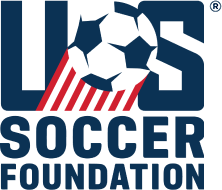

The term 20/20 is often associated with visual acuity. The year 2020 is giving us a painfully clear view of the extraordinary challenges faced by children in underserved communities and the pressing need for our collective help.
Many school buildings in underserved communities are not equipped to adopt the new safety measures needed to host classes safely in person during the pandemic, according to a recent Politico article. Yet studies have found that full-time online learning does not deliver the academic results of in-class instruction. As a result, students are falling further and further behind. Educators in school districts across the country have already reported lower attendance among children who lack reliable internet connections and other equipment needed to be successful in the virtual setting.
According to a McKinsey & Company analysis of COVID-19’s impact on learning loss, Black and Hispanic students may fall behind by nearly a year. What’s more, students living in low-income households may fall behind their peers by even more than a year. The McKinsey analysis also predicts that remote learning will likely increase high-school drop-out rates, as the virus is disrupting many of the supports that can help kids stay in school. Those include academic engagement and achievement, strong relationships with caring adults, and supportive afterschool programming, including youth sports.
Experts say that to avoid the worst possible outcomes, there is an urgent need to intervene immediately to support the most vulnerable students. If government, foundations, corporations and individual philanthropists fail to invest in those supports, they will have abandoned a generation of children who were already facing daunting odds.
In addition to academic support, students will likely need more social and emotional support from counselors and therapists because of spending months in social isolation, often while families experience job loss, economic hardship, and illness, according to a recent article from the New York Times.
Now, more than ever, consistent, positive interactions with caring adults, regular physical activity, and the continued development of social and emotional skills is crucial to the health and well-being of children. That’s where youth sports can play a key role. Research shows that positive sports experiences are associated with a range of benefits for youth, including: higher future earnings; less smoking and drug use; decreased risk of heart disease, diabetes and childhood obesity; higher academic achievement and productivity; improved life skills; and better overall mental health and self-esteem, according to The Aspen Institute’s Project Play Initiative.
At the U.S. Soccer Foundation, we engage students from underserved communities and deliver positive health and youth development outcomes through soccer: 48% of participants in our programs are Hispanic and 34% are African American, and more than 90% qualify for free or reduced-price meals, a key indicator of poverty.
The COVID-19 pandemic has elevated the importance of our work, and we’ve adapted to ensure our sports-based youth development program – Soccer for Success – continues to run this fall.
Our program is now being offered through pre-recorded video sessions (which families and children can participate in at a time that works best for them), live virtual sessions with local coach-mentors, or in-person socially distanced sessions where it’s safe to do so. In addition, all Soccer for Success coach-mentors receive online training that is specifically designed to prepare them to deliver the program and mentorship across these new settings.
Why is having this type of consistent program so important? It provides children much-needed space to form social and emotional connections with caring adults and peers. It provides an outlet for physical activity and a space for learning about health and wellness in a non-traditional school setting.
Because Soccer for Success is fun and engaging, youth are more likely to participate on a regular basis and stay involved in the program – and engaged in school. In fact, the Department of Justice cited the program’s unique ability to engage and retain youth who may not enter or stay in a traditional mentoring relationship. We believe that even in the virtual setting, this will continue to be the case as students will look forward to time spent with their coaches and friends, playing a sport they love.
Traditional classes and education remain the major keys to success for young people. But children in underserved communities benefit greatly from a wide range of interventions that help keep them engaged in school and on the path to success.
We encourage government, corporations, foundations and individual philanthropist to recognize and leverage sports-based youth development programming as an impactful tool when designing the comprehensive response required to meet the challenges the pandemic presents to children in underserved communities.